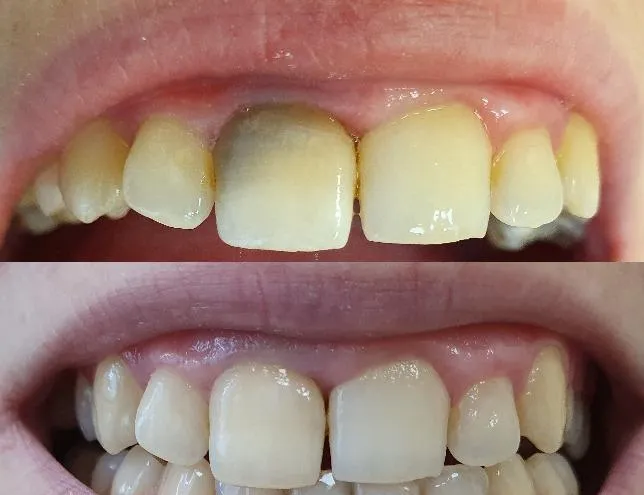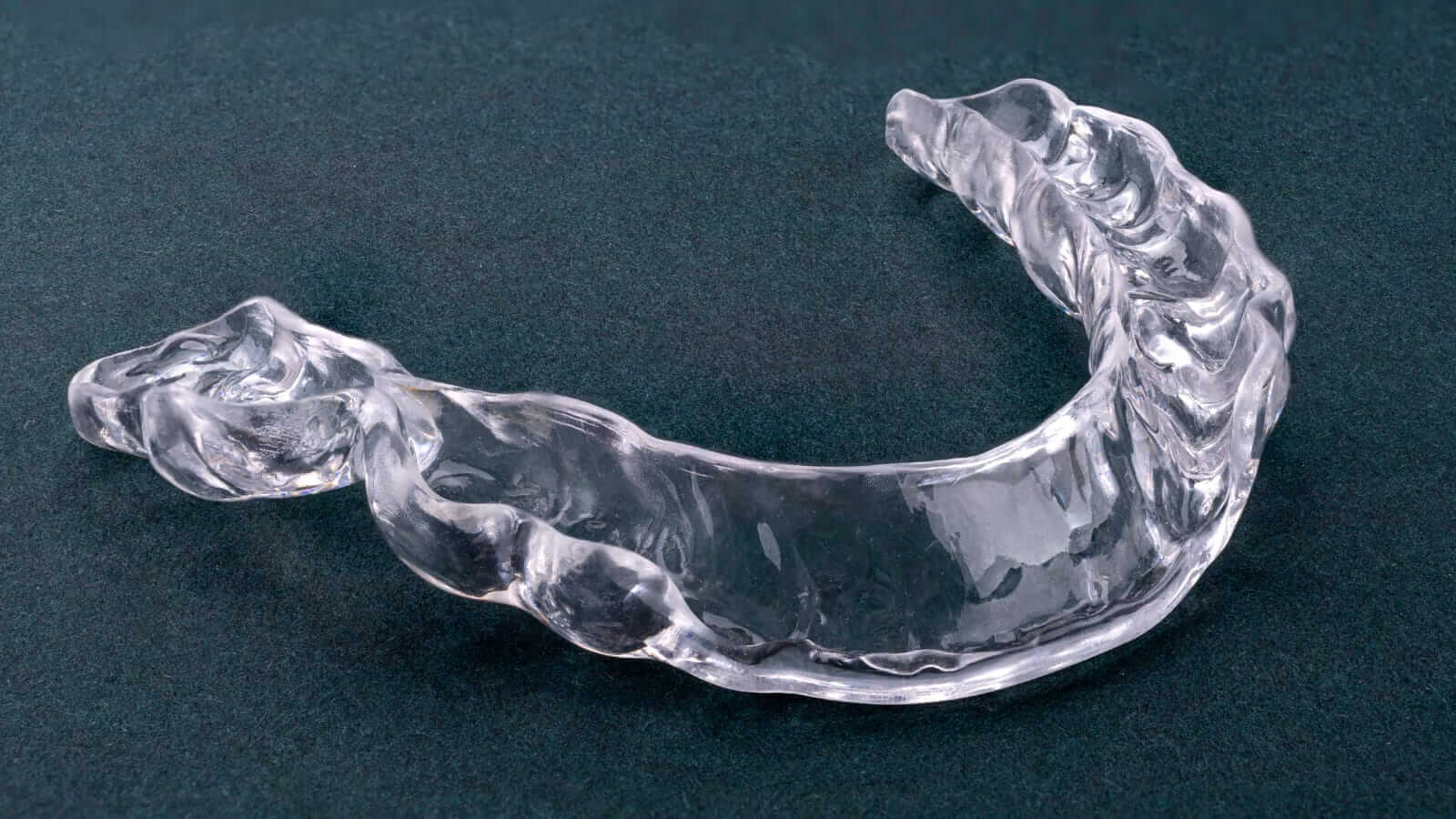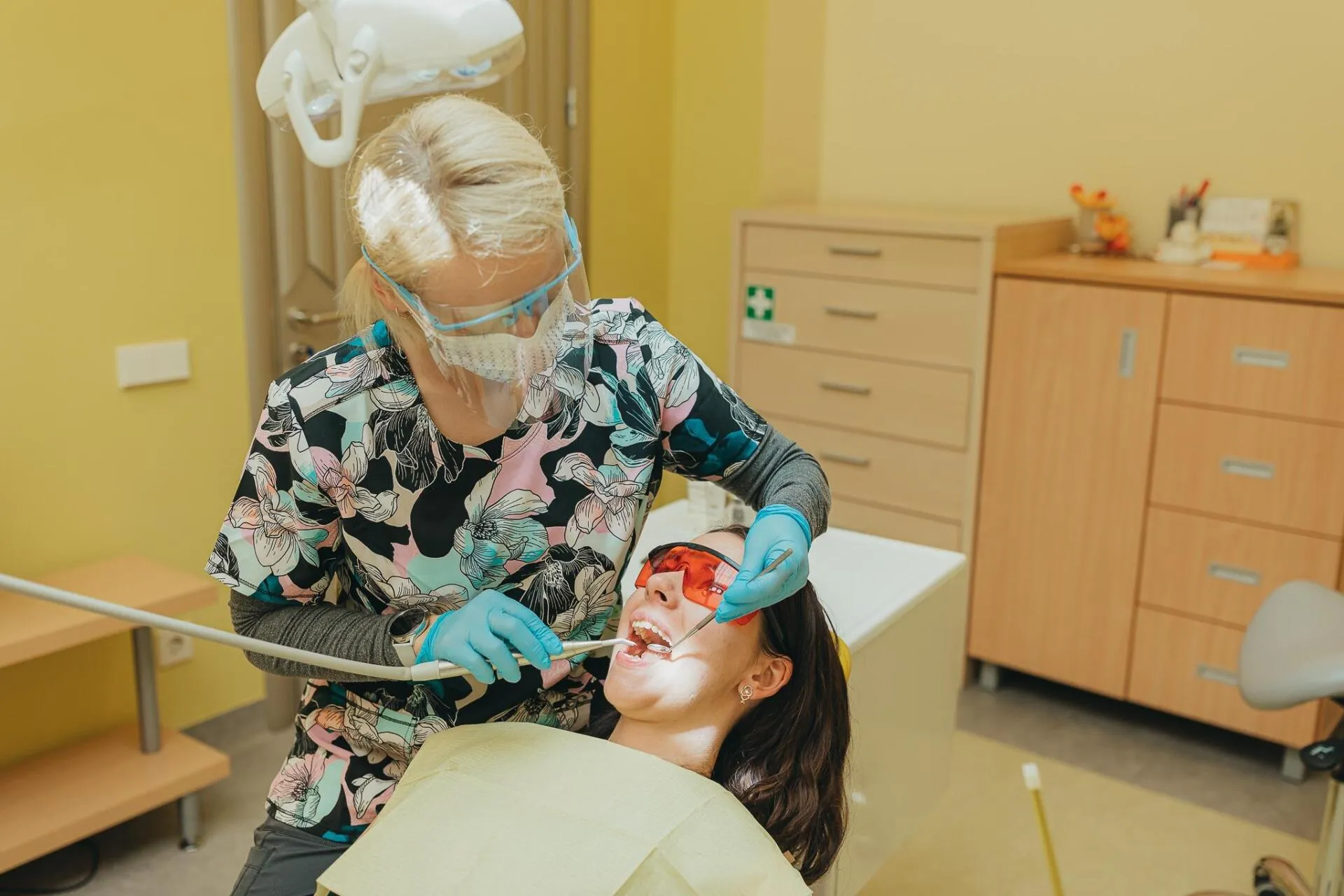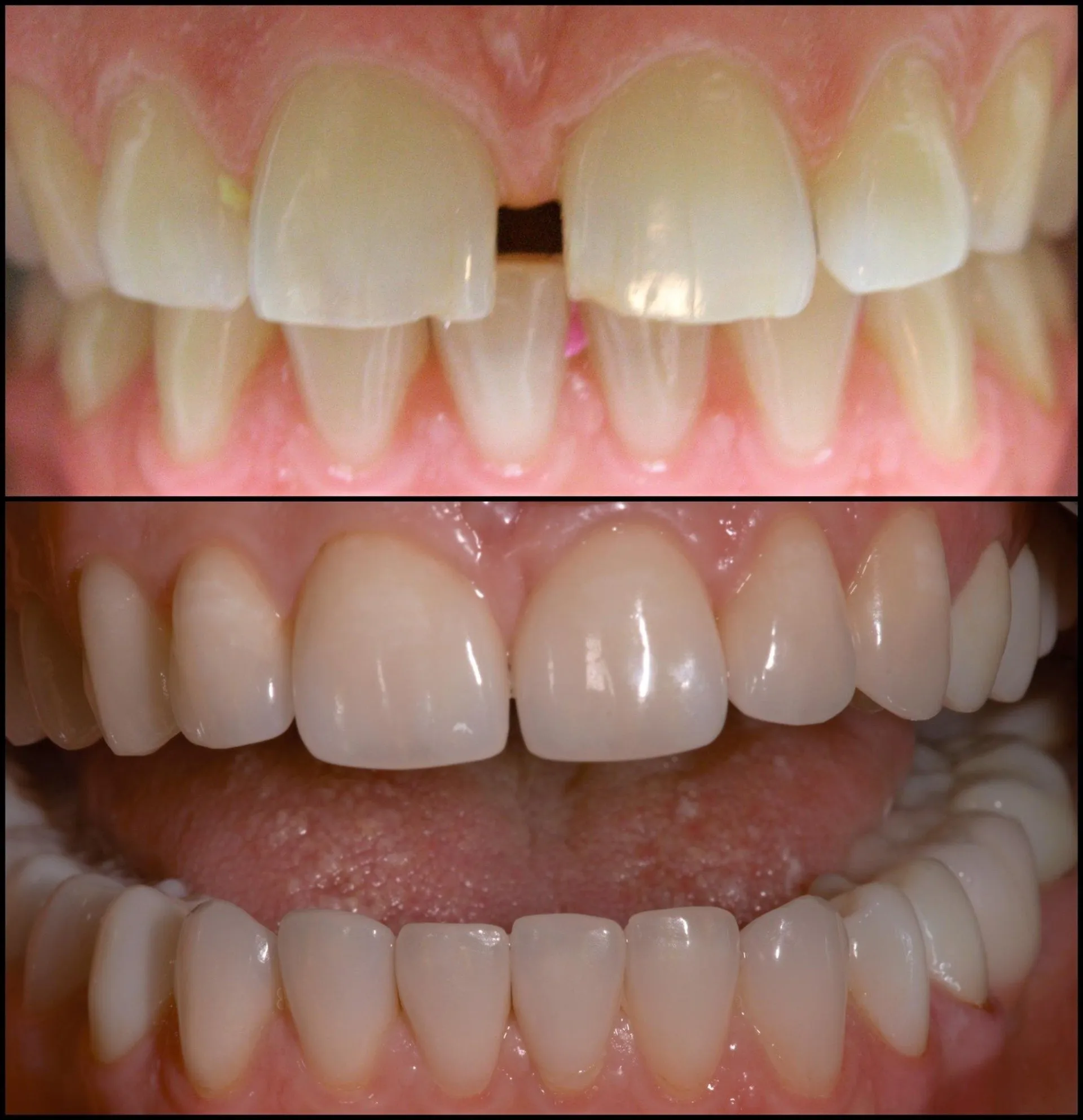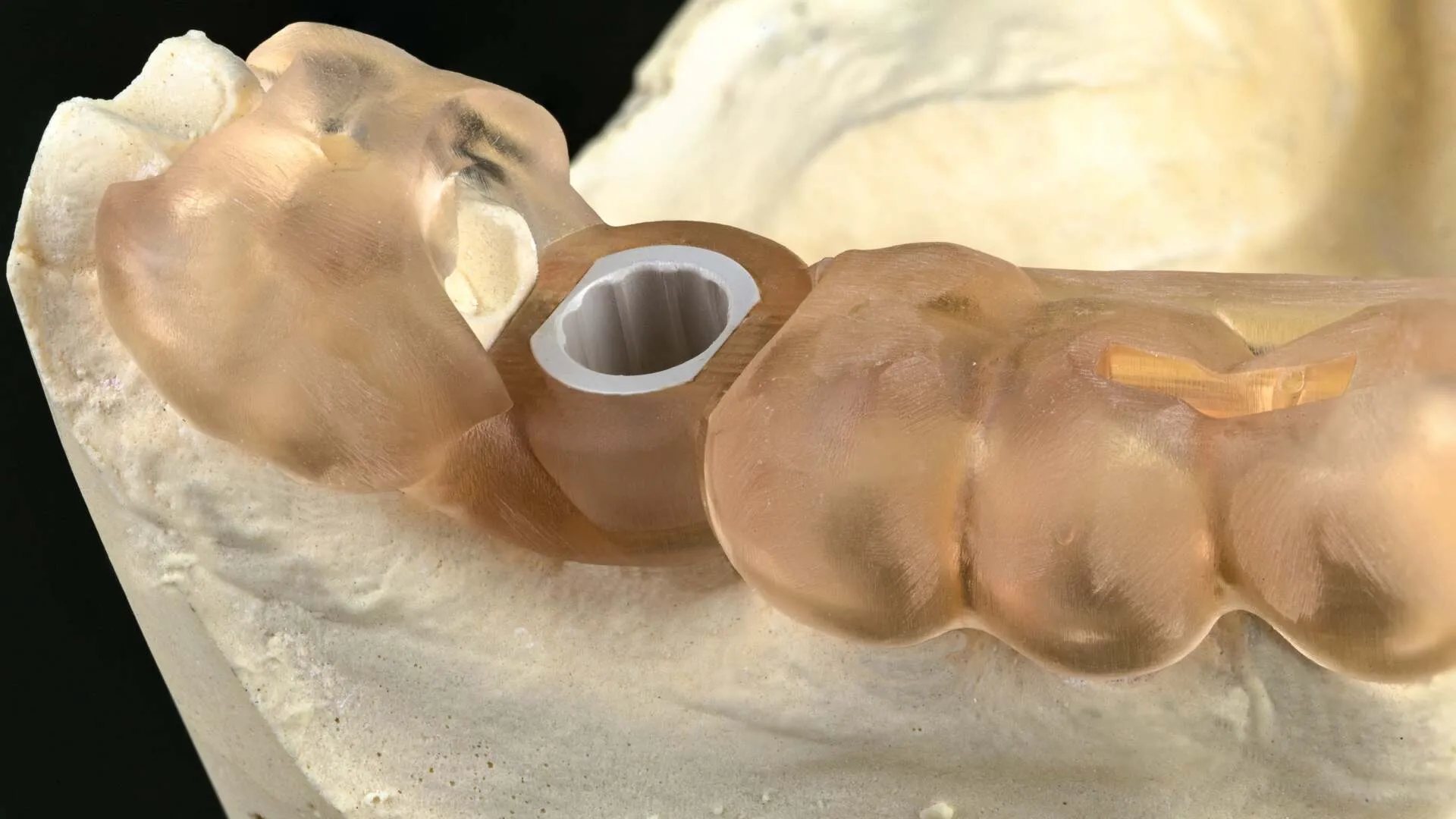Frequently asked questions and answers about Electa services
- with light-hardening materials (white seals)
- with amalgam (silver seals)
- with ceramic onlays or inlays
We work with modern materials with high aesthetic properties, high abrasion resistance and low shrinkage. This means that the filling will last for many years, will not wear out and will not change its color.
If the defect in the tooth is not large, then the tooth can be filled in one session at a time.
If the tooth defect is large, i.e. the tooth walls are thin or most of the tooth is damaged or broken, then it is better to restore the missing part of the tooth with a so-called micro-prosthesis.
We also successfully treat seemingly hopeless teeth. There are good results in the treatment of chronic inflammation at the root ends. The professionalism, friendly attitude and sensitivity of our doctors help achieving excellent results and making dental treatment a pleasant procedure.
- if the tooth is not restorable (for example due to injury or caries)
- if necessary, it must be removed in time to be able to insert a dental implant (in cases of periodontal disease)
- for orthodontic purposes – when adjusting teeth (lack of space in the row of teeth),
- misalignment (e.g. wisdom teeth) that traumatizes an adjacent tooth or a cheek
Extraction of the wisdom tooth is sometimes a complicated process and is part of a small operation that requires special preparation.
- stomatitis,
- acute respiratory diseases,
- in the acute stage of cardiovascular disease,
- malignancies.
When doing teeth whitening at home, you will need a whitening kit consisting of whitening products, individual mouthguards and a product that is applied after whitening. This removes any tooth sensitivity that may occur as teeth lose water during whitening. When whitening your teeth at home, you put whitening mouthguards in your mouth overnight or whiten your teeth for 1.5 hours a day. Teeth are being whitened gradually and the sensitivity of the teeth is negligible.
The advantage of this type of whitening is that you can whiten your teeth as bright as you want and repeat the procedure if necessary. If necessary, you can buy an additional whitening product, and it will be useful for a longer period of time. You can also whiten your teeth while in a dentist’s chair. In this case, a stronger whitening agent is used, which whitens teeth in a maximum of one session, but teeth can be much more sensitive compared to home whitening.
After the session, the “white diet” should be followed for 48 hours, i.e. you should not eat colored food, because the tooth loses fluid during the whitening process and tries to regain the lost fluid after whitening. If this liquid is colored, your teeth will become colored. The advantage of this method is the immediate result, it is possible to whiten a certain number of teeth (often the whitening of one dead tooth is required), and the dentist controls the process (whitening does not spread to the gums and does not injure soft tissues, and can isolate sensitive tooth necks).
If the patient’s teeth have lost their natural whiteness over time and become yellow or dark (for example, due to smoking or coffee), one of the most effective methods of improving the aesthetics of teeth is teeth whitening. It is a dental procedure during which dark tooth pigmentation is broken with the help of a special whitening gel, as a result of which the tone of tooth enamel becomes significantly lighter. The patient can choose to have the teeth whitening procedure performed at home, using special whitening mouthguards, or during a single visit to the dentist’s office, where the patient’s teeth are whitened using the teeth whitening method.
Tartar is removed with ultrasound equipment and special tools. This is followed by polishing the tooth surface with a special paste, which makes the tooth surface smooth, clean and brighter. Tooth polishing also includes removing coffee, tea and smoking residues. There is less soft coating on the polished, smooth enamel surface. A prophylactic fluoride gel and other toothpastes and desensitizers are then applied.
This procedure is very important for the health of your teeth and gums, because hard and soft plaque is formed in everyone’s teeth, and they multiply bacteria, which contribute to the diseases of the tissues around the teeth. There are about 300 types of microorganisms in the mouth, 15 of which can cause tooth and gum disease.
Bleeding gums and bad breath indicate the presence of hard or soft plaque. The plaque is a soft and sticky mass that is more often formed at the neck of the tooth, between the tooth gaps, and in places that are difficult to clean. Over time, the plaque turns into tartar, which enlarges and flakes off the gums and forms deep gingival pockets around the tooth.
Failure to remove tartar can lead to more serious gum problems,
as a result, your teeth may start to move and fall out later. Therefore, it can be said that dental hygiene is a very important procedure. Your dentist or dental hygienist will give you professional advice on proper oral care, as well as help you choose the right preventive measures. They will allow you to take care of your dental health on a daily basis.
The answer is: Yes!
Milk teeth also have nerves and roots, and their health is important for the development of permanent teeth. Therefore, they also need to be treated. An untreated milk tooth can cause purulence, which in turn affects the permanent tooth. Milk teeth save space for a permanent tooth in the tooth row.
Therefore, it is important to take care of your baby’s teeth from the first tooth.
Parents play an important role in caring for the baby’s teeth, so we want to give you some tips to help keep your baby’s teeth healthy.
Do not give the baby a bottle of sweetened drink overnight.
After eating, clean the first teeth with a gauze swab.
Once the child has learned to hold a toothbrush, teach him or her to care for it properly and explain that toothpaste should not be swallowed.
Parents should make sure that the child does not suck the finger, as this contributes to the wrong bite.
It is important not to have a snack between meals and especially before going to bed.
As your child grows, try to avoid products that stick to their teeth, such as chips, candy, cookies. It is important for parents to explain to their child about dental health and to take them to the dentist in time so that the child has positive emotions after visiting the dentist.
Ceramic onlays or inlays are like fillings made in a dental laboratory based on your tooth impression and then the dentist sticks it to the walls of the tooth. These fillings are much more durable, do not change color, do not wear out and are aesthetic. They are usually formed in the side teeth.
With dental plates (ceramic veneers) you can make incisors invisible, improve the appearance of the tooth, slightly shape, color and close interdental gaps. These are very fine, almost transparent ceramic plates that are glued to the slightly polished surface of the front teeth on the tooth enamel. They impress with their natural appearance and impeccable aesthetics. They are very smooth, do not change color over time and do not lose their functionality.
Dental crowns can be made of different materials, such as ceramic, zirconium, gold or metal alloys. A dental crown is placed on an existing tooth if the tooth is severely damaged or discolored, or it serves as a support for the dental bridge.
If the patient has high aesthetic requirements for a crown with less functional load, then the tooth can be restored with a non-metallic ceramic crown or a pressed ceramic crown. It is practically impossible to distinguish such a crown from a natural tooth. Ceramics is a bio-inert material that does not harm the human body. This allows you to choose any desired color for the tooth, as well as eliminates the effect of the so-called bluish gum along the edge of the crown, which is very important in the anterior tooth area. Ceramics conduct light and reflect it well, and it gives the appearance of a natural tooth. In addition, modern technology also provides high mechanical resistance for these crowns.
first-class aesthetic properties, the appearance of a natural tooth, high color and abrasion resistance, does not stain the mouth area at the gums, because there is no metal (gums do not turn blue along the edge of the crown).
Zirconium oxide-based exclusive ceramics – popular in modern dentistry in Europe and America.
Unique properties of zirconium
Zirconium oxide-based ceramics have a high aesthetic quality due to the following factors.
✔ For the first time, it is possible to choose a color not only for the ceramic coating, but also for the color of the crown frame, which is white and naturally transparent. This avoids the transparency effect of the metal.
✔ High-strength ceramics with good light transmission and a wide range of colors are used for the prosthesis lining, which allows to create an almost perfect imitation, a “natural” tooth.
All these factors help to create crowns that are not visually different from natural teeth. The effect of the so-called “bluish gum” along the edge of the crown at the gum, which very often appears in cermet crowns, is ruled out.
High mechanical resistance is achieved by microstructural changes – the addition of small amounts of yttrium oxide.
High mechanical resistance offers the following advantages and possibilities:
✔ to make crowns and bridges for up to four units in the frontal and lateral areas,
✔ to make crowns on implants,
✔ the thickness of the zirconia oxide frame is only 0.4 mm; this allows less grinding of the teeth and the crowns are much lighter than cermet crowns,
✔ The effect of electroplating is completely ruled out, because there are no metal elements in the mouth, it is important for patients that the crowns protect the tooth from irritants (when using cold or hot food) and are not allergic because it is biocompatible.
Zirconium oxide crowns are truly safe and aesthetic!
Your dentist may advise you to apply a crown for a variety of reasons, but the main ones are: restoring the original shape of the tooth, strengthening the tooth or improving the appearance of the tooth. Crowns are usually placed on severely worn, broken teeth or teeth severely damaged by caries. The first step towards a beautiful and functional artificial tooth crown is an impression made of a very pleasant silicone material. It travels to a dental technical laboratory where the plaster cast is released. This is followed by a complicated crown manufacturing process.
Cermet crown – it is a combination of metal frame and ceramic finish. These crowns are usually placed on severely damaged side teeth, less often on the front teeth. To produce such a crown, the dental technician must first make a metal frame that fits very precisely on the prepared tooth. The frame is the most important part of the construction, so to achieve maximum quality, it can be made of precious metal alloys (gold, platinum, zirconium oxide or aluminum) or titanium alloys, or chromium-cobalt alloys. The next step is to apply the ceramic on the carcass in layers. It is a process made by hand that requires time and knowledge as well as high professionalism. Such a crown has high aesthetic properties and high mechanical resistance.
Dental plate – prosthetic option for toothless jaws or jaws with unlimited defect. Plastic teeth are so natural that the uninitiated can hardly tell that they are not real. The plastic base fits snugly on the gums. The only drawback is the need to adapt to it.
Arch prosthesis. Unlike acrylic plates, it contains a metal frame and various fixing elements (clamps). This reduces the base of the denture. Until recently, it was not possible to hide the fixing elements (clamps) for arch prostheses. Today, various hidden fixation elements are available, which ensure high aesthetic requirements.
News
The reasons for tooth discoloration
There are two types of tooth discoloration: Internal tooth
Dental mouthguards
There are different types of dental cemeteries in dentistry
Recommendations for patients with erosion
Recommendations: The cause of erosion must always be found
What to do if a child has a toothache
Children love to be on the move - running,
How to improve a smile
There are different ways to improve your smile: If
Implants and surgery guide
Implantation is a common procedure today, as dental implants






